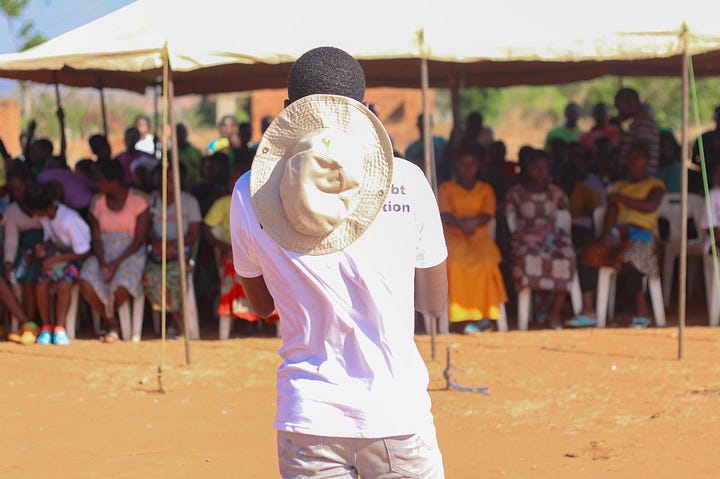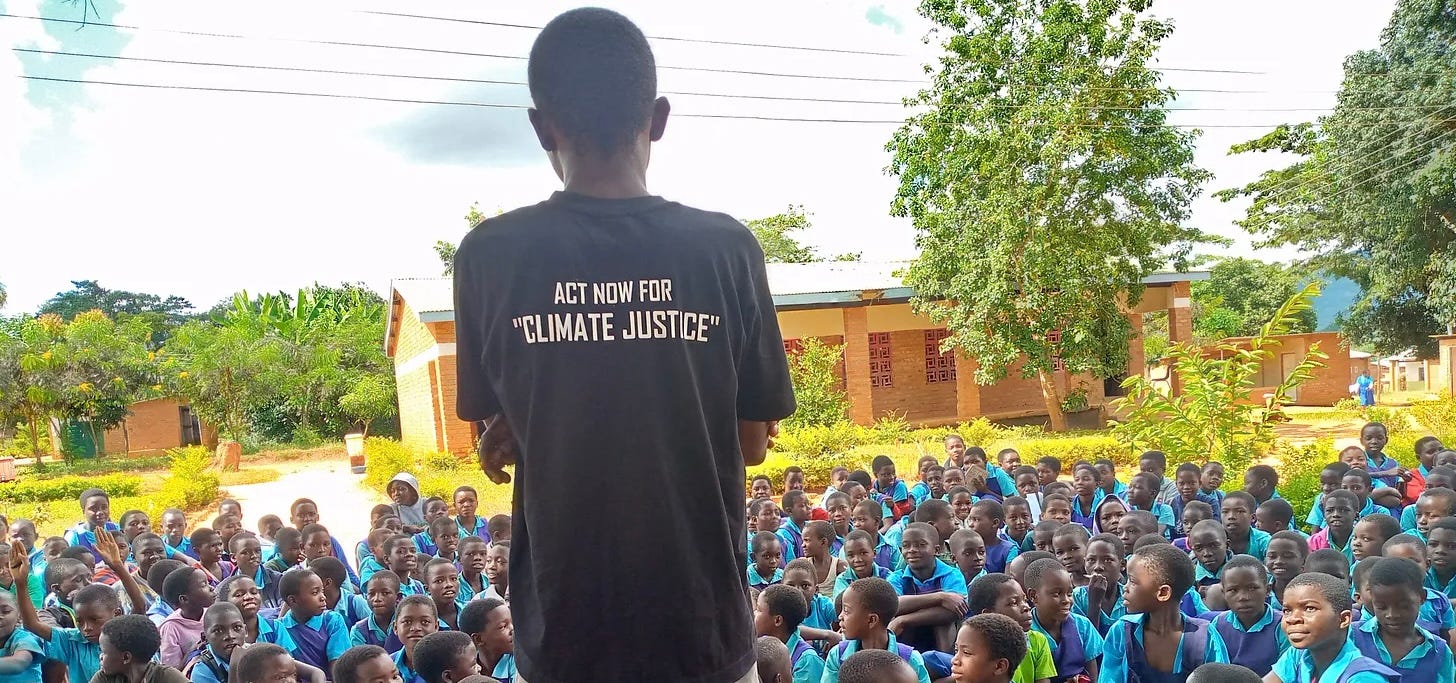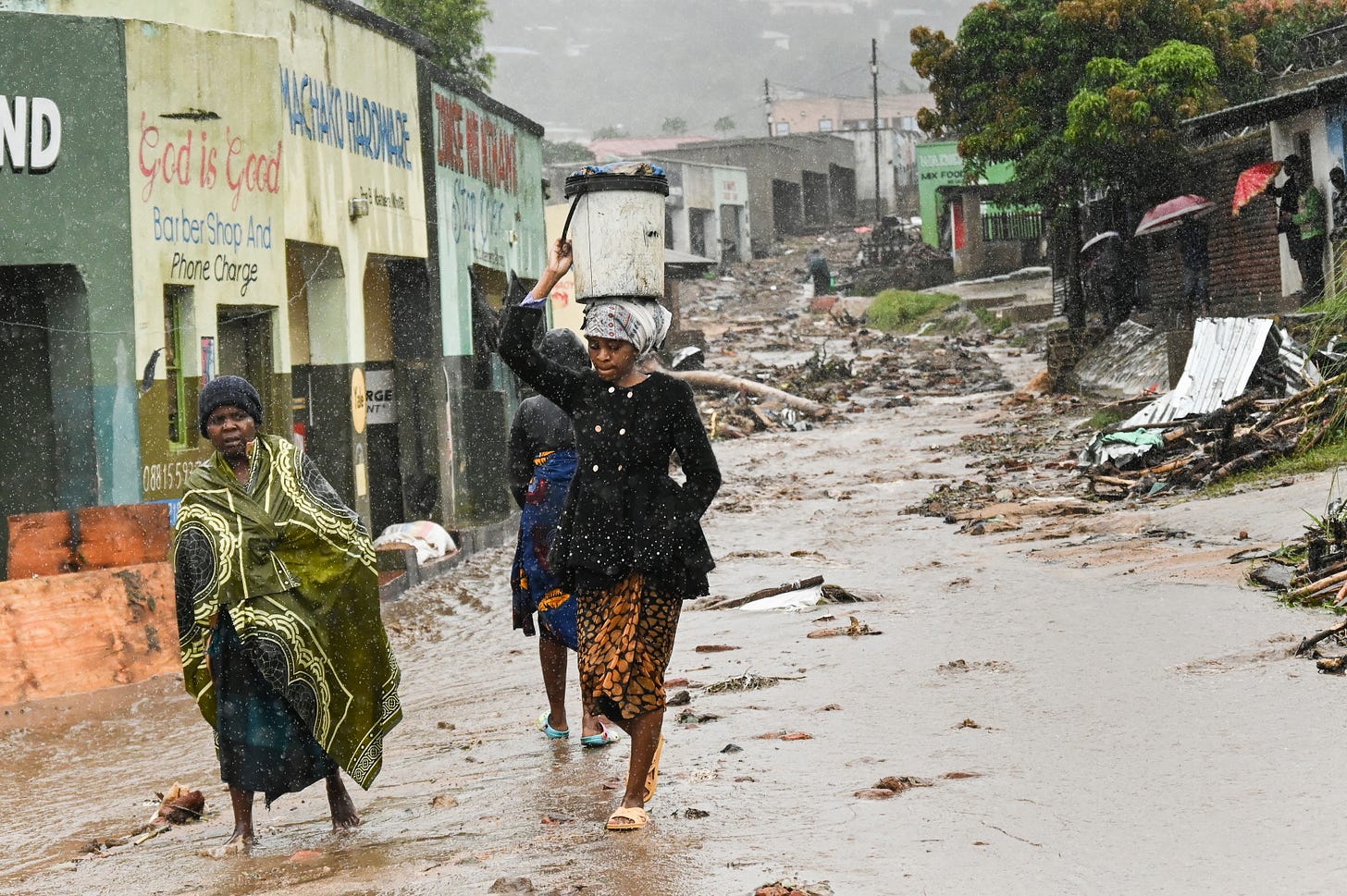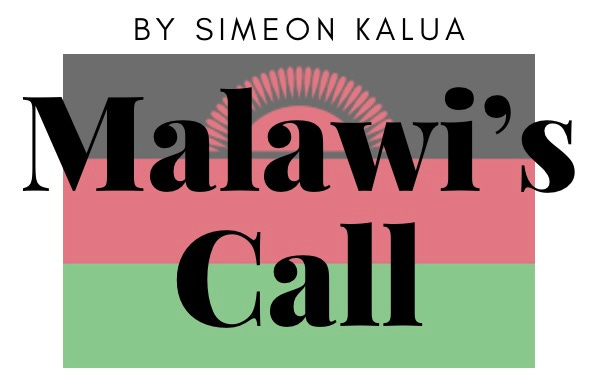One of my goals while being in Africa was to meet up with young activists, particularly ones at the intersection of climate change and a just transition. Malawi interested me from a climate perspective as I was already aware of its extremely vulnerable climate profile, and it was there that I had the lucky chance to meet with an extremely motivated young man who dedicates so much of his time and energy to climate justice activism. But before I introduce you to Simeon, lets do a Malawi deep-dive…
Malawi is a country 1.5 times the size of Ireland and has a population of around 20 million people - yes it feels as crowded as you’re probably imagining and there is never not groups of people walking along the roadside. It also happens to be one of the poorest countries in the world, with 80% of the people dependent on agriculture for survival (80% of the food consumed in Malawi is produced there). This means it‘s a country that is extremely vulnerable to climatic shocks. Since 2019, seven cyclones have made direct landfall in Malawi, the most severe being in March 2023. “Cyclone Freddy” brought wind speeds of up to 172 kmph and resulted in devastating damage across the southern regions.
Cyclones are adverse effects of climate change, and they are expected to increase substantially over the coming decades.
Climate change is also projected to increase the average annual temperatures across the country, which can lead to increased periods of drought and food shortages. During the period 2010–2022 Malawi experienced 16 major flooding events, a rainfall-related landslide, five storm disasters, and two severe droughts (World Bank Group 2022). And in case you’ve been living in a bubble - extreme climatic events are accelerated by global warming, which is accelerated by increased greenhouse gas emissions, which are predominantly emitted by the high income countries in the Global North - that‘s us.
While the full cost of the impact of Cyclone Freddy has still not been priced, I want to give you an idea of the estimated scale of the damage. The storm lasted 38 days after it barreled 5,000 miles across the Indian Ocean. It made landfall on Madagascar, then hit mainland Africa (predominantly Mozambique, Zimbabwe, and Southern Malawi), before heading back out to the Indian Ocean where it intensified further, only to come back to land and batter Malawi again. Cyclone Freddy dropped six months of rainfall in just six days! It triggered floods and mudslides that killed more than 1,200 people and displaced 659,000. More than 2 Mio farmers lost their crops, 440,000 acres of land was destroyed, and 1.4 Mio livestock were drowned, starved, or lost.
It‘s not even a whole year since Freddy, and Malawis food system is still reeling. It’s not just the 2023 harvest that was affected, the consequences of the soil erosion on the productivity of the agricultural land is long term. Soil erosion diminishes soil fertility, which leads to decreased crop yields. These low agricultural outputs lead to a food shortage, which leads to increases in food prices nationwide. According to the Integrated Food Security Phase Classification (IPC), 4.4 million Malawians will require food assistance before March this year, a 15 percent increase from last year. This is an example of one of the many long term impacts of Cyclone Freddy. Long story short, the impact is huge.
I wondered to myself… why do we not see young Africans in our media getting angry as hell at us nations in the Global North? Why do we not see them on the streets outraged by the unfairness and injustices of the current situation - where today‘s rich countries have reached the highest levels of material welfare the world has ever known primarily by harnessing cheap energy from fossil fuels, but most of the negative consequences of this will fall on (and is already falling on) the world‘s poorest nations. I imagined that if I were a Cyclone Freddy survivor, I would stop every white person I came across and demand that they financially compensate me and my family. It was during my first discussion with Simeon, a young climate justice activist from Malawi, that I started to understand the situation in more detail.

First of all, there are young sub-Saharan Africans raising their voices, even if they are few and far between - particularly in Malawi. One of the main barriers to people „getting angry“, as I had put it, is the knowledge gap. According to Simeon, the vast majority of people in Malawi do not understand what climate change is, never mind adverse weather events caused by global warming. He also blames churches, as he believes that the information they are given in churches prevents people from taking action. When churches are telling people that cyclones are „acts of god“, you can understand why people feel like there is no power in their hands. Simeon also told me that it is next to impossible for him to address politicians directly, as most of them ask for a payment for a meet up, or to attend an event. He also added a side note regarding corruption in the country, and how this is also a huge barrier to the fight for climate justice. Climate justice and information gaps (as well as misinformation) are what Simeon tries to address through his restless advocating during the last few years.
Climate justice relates to concerns about the inequitable outcomes for different people and places associated with vulnerability to climate impacts and the fairness of policy and practice responses to address climate change and its consequences.
I was so impressed by how much this 24 year old guy had achieved so far given the limitations that exist in Malawi. He studied a bachelors in Public Health and has the goal of doing a masters in Climate Change and Planetary Health, so that he can tackle issues at the intersection of climate and public health. His relentless activism in Malawi has also presented him with wonderful growth and learning opportunities. He is an FXB ambassador and attended COP 28 as part of a cohort of climate advocates. He was a youth delegate at the Africa Climate Summit 2023 in Nairobi, Kenya. He has founded several movements like Fridays For Future Malawi, Rise Up Movement Malawi, and Climate Live Malawi - all with the shared goal of demanding global leaders to immediately act on the global pressing issue of climate change. He also visits schools and does talks with the pupils on topics like climate education, and initiates small projects in communities like cleanups and tree planting exercises. Deforestation is a huge problem in Malawi, and since trees play a vital role in reducing flooding, absorbing rainwater, and reducing soil erosion, tree planting is a way that communities can help make themselves more resilient.


After meeting with Simeon I was convinced that he needed a platform of his own. I also believed that his powerful voice needed to be heard by people in the Global North. Voices from countries in Malawi are more often than not flying under the radar when it comes to climate issues and I want to help change this. I’ve been working and advocating in the field of sustainability for almost five years now where important voices like Simeon’s were virtually non-existent. I decided to take on a mentoring role to Simeon and support him with developing his platform and amplifying his voice and the collective voice of the youth in Africa.
Introducing Malawi‘s Call, Simeon‘s very own Substack. It‘s there that he plans to share stories from Malawi with a focus on climate justice issues, and hopes to connect voices from the Global South with the Global North. I invite you to follow him along on his journey (hopefully you will also learn and benefit from it), and support this courageous and inspiring young African by subscribing to his Substack.
Links for further reading:
Article about the future for farmers in Malawi and their recovery since Cyclone Freddy
The phenomenal work Irish charity Trócaire is doing in Malawi
Thanks for reading this postcard from Malawi - I hope you enjoyed it. Or better still, are inspired by it!
Don‘t forget to subscribe if you haven‘t already!











Fantastic article. Very engaging. And so glad you use your platform to lift up others. I've subscribed to Simeon's Substack.
Go Simeon, go!!